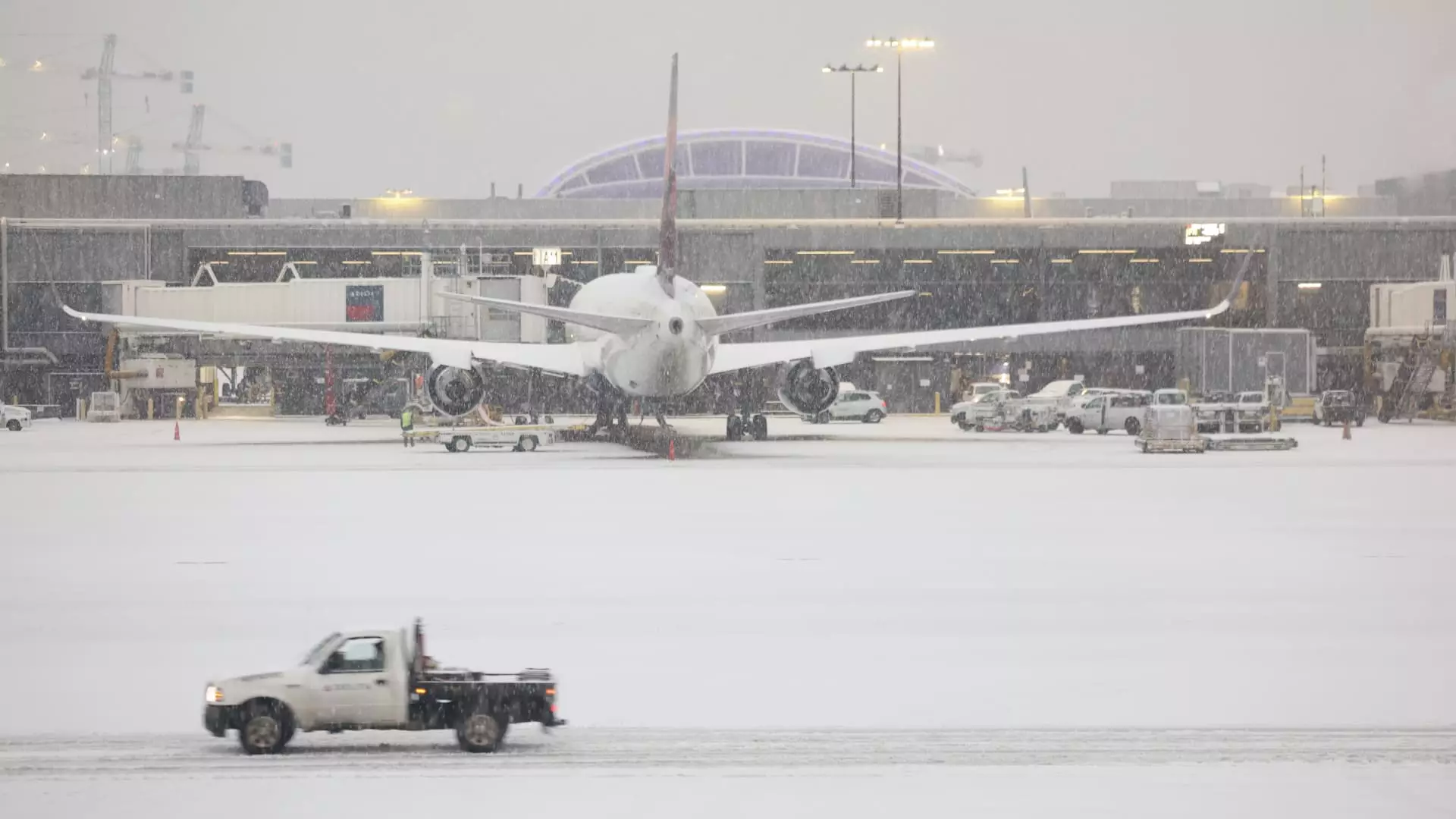This past Friday, an unprecedented winter storm wreaked havoc on air travel in the Southern United States, leading to the cancellation of over 2,000 flights and the delay of an additional 2,000. The severity of the storm not only caused disruptions but set off a chain reaction affecting major travel hubs. Hartsfield-Jackson Atlanta International Airport, recognized as the busiest airport globally and Delta Air Lines’ primary operating hub, was hit particularly hard.
Adding to the chaos, a Delta Air Lines Boeing 757-300 encountered a critical mechanical issue, prompting an emergency evacuation of its 201 passengers and seven crew members. The flight, which was scheduled to depart from Atlanta to Minneapolis-St. Paul, had its takeoff halted due to an engine warning indication. Delta Air Lines issued a statement emphasizing that passenger safety remains their top priority and extended apologies to those affected. The airlines reassured customers that efforts were being made to assist them in reaching their destinations promptly and securely.
According to flight-tracking service FlightAware, nearly 900 flights linked to Atlanta were grounded, making up roughly 40% of the city’s scheduled operations for the day. Additionally, the airport implemented a groundstop to prevent excessive flight congestion, halting incoming aircraft at their departure points. Such measures are crucial in managing the flow of stranded travelers and ensuring that the airport can effectively respond to the storm’s impact.
The effects of the storm extended beyond Atlanta, significantly disrupting operations at key airports in Texas and North Carolina. Flights to and from Dallas/Fort Worth International Airport and Charlotte Douglas International Airport experienced over 1,000 cancellations. Particularly in Dallas, which was hit by heavy snowfall, Thursday saw most of the day’s flights grounded.
In light of the extensive travel disruptions, several airlines, including Delta, Southwest, and American, stepped in to alleviate the burden on travelers by waiving change fees and fare differences. This move is vital in maintaining customer goodwill during stressful travel scenarios. As severe weather conditions continue to challenge air travel, the industry’s response will be critical in managing customer satisfaction and recovery.
This winter storm underscores the vulnerability of air travel to extreme weather events and the importance of preparedness among airlines and airports. As passengers face cancellations, delays, and emergency situations, the focus must remain on improved communication, safety measures, and customer support. Moving forward, a collaborative effort among airlines, airport authorities, and meteorological services may enhance resilience against such disruptive occurrences in the future.

